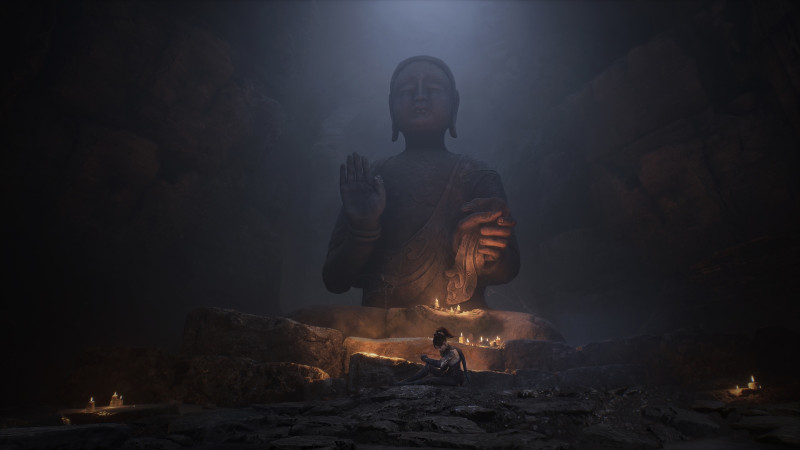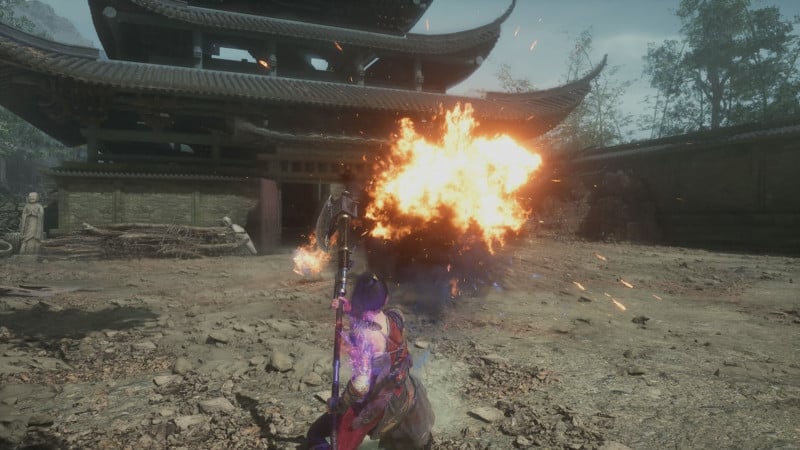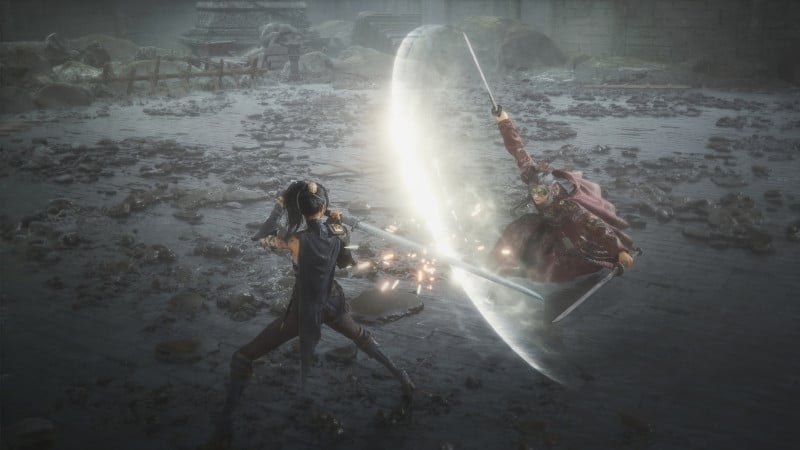The Soulslike subgenre is becoming oversaturated, so it’s difficult for new takes to stand out. Wuchang: Fallen Feathers doesn’t reach the upper echelon of its stronger contemporaries, but it is a generally well-executed checklist of genre tropes with inventive ideas for combat customization and a unique form of dynamic difficulty scaling.
As Bai Wuchang, you’re a battle-hardened pirate infected with a supernatural plague called the Feathering, which causes victims to transform into mindless, bloodthirsty beasts. However, Wuchang was somehow spared this fate, but she has lost her memory. As the Feathering sweeps across a well-realized Ming Dynasty-era China, it’s up to you to channel your newfound demonic powers, locate the source of this scourge and eradicate it, find a cure, and recover your memories. The story is middling and, in my specific case, wraps up in an abrupt and unsatisfying conclusion, unlocked from a pool of possible endings. While the art direction is strong, Wuchang suffered fluctuating graphical fidelity and performance (playing on a base PS5) that sometimes bordered on unacceptably bad, hampering the experience.
Combat shines most in this adventure by drawing inspiration from Bloodborne. Battles are an often-entertaining dance of aggressively attacking foes while evading damage to stay within reach. Well-timed evades reward mana points called Skybound Might, used to cast spells. I love how Wuchang incentivizes skillful evasion in this way, and winning a fight only by dodging and retaliating with spells, such as lobbing a crimson spear or a fiery skull, is a viable (and sometimes wise) strategy.
Wuchang gives players a near-overwhelming number of systems to tailor their playstyle through various weapons (including large skill trees for each one), augments, and passive perks. You can equip weapons with three perk-granting stones, which in themselves come in various types. Slotting up to four “needles” into Bai Wuchang’s demonically feathered arm bestows weapon “tempering” effects, like increasing fire damage or adding a health-leeching effect to attacks. A neat weapon-swapping mechanic unleashes a unique special attack depending on the tools equipped, adding another wrinkle to consider when choosing which two weapons to equip. It’s a lot to take in, and while I wish Wuchang didn’t throw all of its features at players in relative short order – firmly grasping everything took a while – I like how the game encourages multiple playstyles and tougher encounters often require shaking up your loadout or strategy.
Weapon classes, including long swords, spears, and axes, sport unique special attacks and traits. For example, Wuchang can’t block inherently, but axes grant this ability for more defensive-minded players. Those who would rather rely on spells should lean on magic-centric short swords. By sparingly introducing new weapons, Wuchang allows players to become intimately familiar with what they have, and progression revolves around improving proficiency with chosen arms; I much prefer this to regularly cycling through new loot.
However, the massive, Path of Exile-inspired skill trees mean you can’t freely improve crucial traits, like stamina and health, since you can only unlock stat buffs in a predetermined order. This feels more restrictive than I’d like, and I didn’t like spending thousands of skill points unlocking a special move I didn’t want/need just to grab as many +1 stamina upgrades as possible along the way.

Repeatedly dying builds a meter called Madness that raises your attack while increasing damage taken. Failing essentially makes you a glass cannon, and I like how Madness dynamically changes the stakes of encounters by giving me an edge while forcing me to sharpen my evasion/counter skills to nullify my weakened defense. When Madness peaks, a mini-boss spawns in the form of an “Inner Demon” in place of fallen XP; beat her, and then you get your points back. This is a fun and devious punishment that adds even more tension and excitement to the exercise of XP retrieval, though the Inner Demon became less threatening as I grew stronger.
Wuchang’s neat ideas are wrapped around an otherwise familiar, if unremarkable, design core. Exploring the often corridor-like biomes, from a snowy palace to a hellish forest, and cutting down foes is a paint-by-numbers exercise of unlocking shortcuts and finding hidden items off the beaten path, with some annoyingly unfair level hazards sprinkled about. While tough in the way you’d expect from the genre, Wuchang is what I’d describe as “comfortably difficult:” hard enough to feel some sense of reward, but never overwhelmingly so. Most boss encounters took me fewer than five or six attempts to topple, and greater challenges were defeated through a combination of pure finesse and light level grinding. As a Souls enthusiast, it’s almost cozy how manageable Wuchang ultimately is (comparatively speaking), but that does make its bigger clashes less remarkable or memorable.

That last point is my biggest takeaway from Wuchang. It’s very competent and enjoyable, but much of it feels like Soulslike junk food; tasty with a few neat ideas, but nothing will stick with me compared to more substantial offerings. Wuchang: Fallen Feathers may not revolutionize the genre, but it’s a good rendition of a favorite song.
